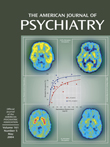Sustained Benefit of Supportive Intervention for Depressive Symptoms in Caregivers of Patients With Alzheimer’s Disease
Abstract
OBJECTIVE: The long-term effect of counseling and support on symptoms of depression was examined in spouse-caregivers of patients with Alzheimer’s disease. METHOD: The participants were 406 spouse-caregivers of Alzheimer’s disease patients who lived at home at baseline. The caregivers were randomly assigned to either a group receiving enhanced counseling and support treatment or a group receiving usual care (control group). Caregivers in the enhanced treatment group were provided with six sessions of individual and family counseling, agreed to join support groups 4 months after enrollment, and received ongoing ad hoc counseling. The Geriatric Depression Scale was administered at baseline and at regular follow-up intervals for as long as the caregiver participated in the study. RESULTS: After baseline differences were controlled for, caregivers in the enhanced treatment group had significantly fewer depressive symptoms after the intervention than did the control subjects. These effects were sustained for 3.1 years after baseline, similar across gender and patient severity level, and sustained after nursing home placement or death of the patient. CONCLUSIONS: Counseling and support lead to sustained benefits in reducing depressive symptoms in spouse-caregivers of Alzheimer’s disease patients and should be widely available to provide effective, evidence-based intervention for family caregivers.



